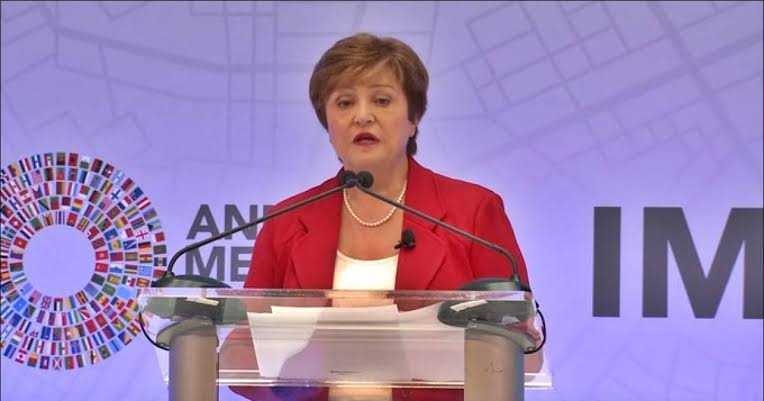Addressing the Development Committee Meeting during the annual Spring Meeting of the International Monetary Fund (IMF) and the World Bank, the IMF Managing Director said a large global contraction in the first half of this year was inevitable.
She said the coronavirus pandemic hit the world economy when it was already in a fragile state as it was weighed down by trade disputes, policy uncertainty and geopolitical tensions.
Georgieva added that the global coronavirus outbreak is a crisis that is like no other and poses daunting challenges for policymakers in many emerging market and developing economies (EMDEs), especially where the pandemic encounters weak public health systems, capacity constraints, and limited policy space to mitigate the outbreak's repercussions.
Countries that were affected early-such as China, South Korea, and Italy-have suffered large contractions in manufacturing activity and services, exceeding the losses recorded at the onset of the global financial crisis, Georgieva said.
She further said that the first priority must be to limit the human toll from the pandemic. Policymakers must use all instruments at their disposal to slow the pandemic's spread and prevent overloading their health systems. The idea of a trade off between saving lives and saving livelihoods is a false dilemma.
Addressing the Development Committee Meeting during the annual Spring Meeting of the International Monetary Fund (IMF) and the World Bank, the IMF Managing Director said a large global contraction in the first half of this year was inevitable.
She said the coronavirus pandemic hit the world economy when it was already in a fragile state as it was weighed down by trade disputes, policy uncertainty and geopolitical tensions.
Georgieva added that the global coronavirus outbreak is a crisis that is like no other and poses daunting challenges for policymakers in many emerging market and developing economies (EMDEs), especially where the pandemic encounters weak public health systems, capacity constraints, and limited policy space to mitigate the outbreak's repercussions.
Countries that were affected early-such as China, South Korea, and Italy-have suffered large contractions in manufacturing activity and services, exceeding the losses recorded at the onset of the global financial crisis, Georgieva said.
She further said that the first priority must be to limit the human toll from the pandemic. Policymakers must use all instruments at their disposal to slow the pandemic's spread and prevent overloading their health systems. The idea of a trade off between saving lives and saving livelihoods is a false dilemma.










237.jpeg)
74.jpeg)
343.jpeg)
342.jpeg)
143.jpeg)
235.jpeg)
481.jpeg)
14.jpeg)
97.jpeg)





